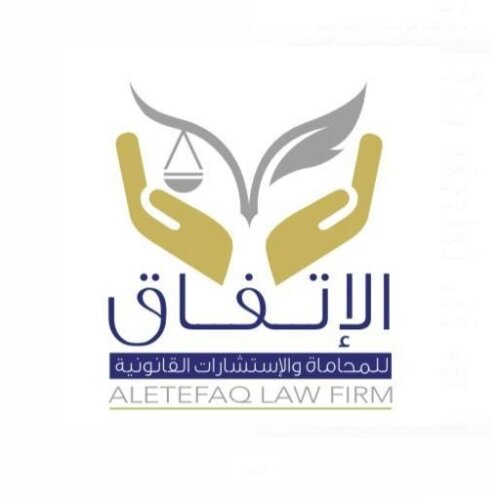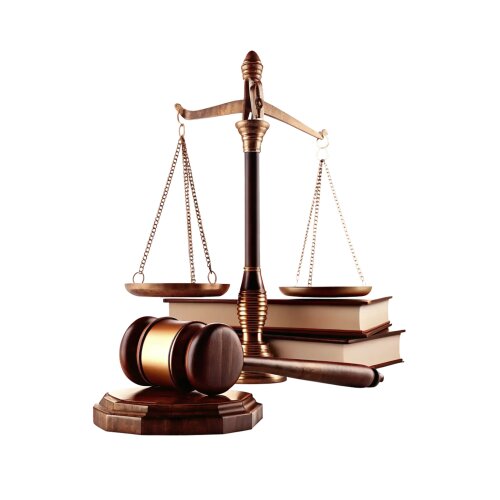Best Arrests & Searches Lawyers in Qatar
Share your needs with us, get contacted by law firms.
Free. Takes 2 min.
Or refine your search by selecting a city:
List of the best lawyers in Qatar
About Arrests & Searches Law in Qatar
Qatar has a unique legal system based on Islamic Sharia law, supplemented by statutory law. The country is known for its strict legal framework, especially concerning law enforcement practices like arrests and searches. Laws are designed to maintain order and respect cultural and religious norms. Arrests are typically conducted by law enforcement agencies following a specific process, which requires warrants under most circumstances. However, there are exceptions for situations where immediate action is deemed necessary.
Why You May Need a Lawyer
Legal assistance is crucial for anyone facing or questioning the legality of arrests and searches. You might require a lawyer in several common scenarios, such as:
- If you have been arrested and need guidance on your rights and legal processes.
- If you believe a search was conducted unlawfully, infringing on your privacy rights.
- If you face charges based on evidence obtained during a search.
- If you are a foreigner unfamiliar with local laws and require representation to navigate the legal system.
Having a lawyer can ensure that your rights are protected and that you receive fair treatment under the law.
Local Laws Overview
Qatar’s legal framework concerning arrests and searches involves several key aspects:
- Warrant Requirements: Generally, a warrant is required for arrests and searches unless immediate intervention is necessary.
- Rights Upon Arrest: Individuals have the right to know the reasons for their arrest and are entitled to legal representation.
- Search Procedures: Searches must be justified and conducted in adherence to legal standards to protect individuals' privacy rights.
- Role of Public Prosecution: The Public Prosecution office plays a significant role in overseeing the investigation process and ensuring that law enforcement actions are legal and justified.
Frequently Asked Questions
What should I do if I am arrested in Qatar?
Remain calm and cooperative. Request to contact your lawyer or the embassy if you are a foreign national. Ensure you understand the charges against you.
Can the police search my home without a warrant?
Generally, police require a warrant to search your home, except in emergencies or if there is probable cause.
What are my rights if I am subject to a search?
You have the right to ask for the reason and to see the warrant if applicable. You also have the right to remain silent and seek legal counsel.
How long can I be detained without charge?
Under Qatari law, you can be detained for up to 24 hours without charge. The detention can be extended but must be sanctioned by the Public Prosecution.
What constitutes an illegal arrest?
An arrest without a warrant or probable cause, or one carried out with excessive force or without informing the individual of their rights, can be considered illegal.
Can I refuse a search?
You can refuse a search if the police do not have a warrant. However, non-cooperation may lead to complications. It's advisable to seek legal advice immediately.
What are the consequences of resisting arrest?
Resisting arrest can lead to additional charges. It is advisable to comply during the arrest and seek legal assistance immediately thereafter.
What happens if I am acquitted of charges?
If acquitted, you are free to leave, and any associated restrictions should be lifted. You may also have the right to seek compensation for wrongful arrest.
Can evidence obtained from an unlawful search be used in court?
Typically, evidence obtained unlawfully can be challenged and may be deemed inadmissible in court. Legal counsel can assist with this process.
How do I file a complaint against unlawful arrest or search?
You can file a complaint with the Public Prosecutor's office or seek legal assistance to guide you through the process.
Additional Resources
For further assistance, consider reaching out to the following:
- Ministry of Interior (for policies regarding arrests and searches)
- Qatar Bar Association (for legal representation and guidance)
- Your country's embassy (if you're a foreign national for emergency legal assistance)
Next Steps
If you find yourself needing legal assistance concerning arrests or searches in Qatar, consider these steps:
- Contact a Lawyer: Find a legal expert experienced in Qatari law.
- Gather Documentation: Collect any related documents, such as warrants or police records, that may aid in your defense.
- Schedule a Consultation: Meet with your lawyer to discuss your case details and potential strategies.
- Stay Informed: Keep up with any legal proceedings or changes in your case status, and maintain open communication with your legal representative.
Lawzana helps you find the best lawyers and law firms in Qatar through a curated and pre-screened list of qualified legal professionals. Our platform offers rankings and detailed profiles of attorneys and law firms, allowing you to compare based on practice areas, including Arrests & Searches, experience, and client feedback.
Each profile includes a description of the firm's areas of practice, client reviews, team members and partners, year of establishment, spoken languages, office locations, contact information, social media presence, and any published articles or resources. Most firms on our platform speak English and are experienced in both local and international legal matters.
Get a quote from top-rated law firms in Qatar — quickly, securely, and without unnecessary hassle.
Disclaimer:
The information provided on this page is for general informational purposes only and does not constitute legal advice. While we strive to ensure the accuracy and relevance of the content, legal information may change over time, and interpretations of the law can vary. You should always consult with a qualified legal professional for advice specific to your situation.
We disclaim all liability for actions taken or not taken based on the content of this page. If you believe any information is incorrect or outdated, please contact us, and we will review and update it where appropriate.
Browse arrests & searches law firms by city in Qatar
Refine your search by selecting a city.

















